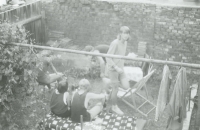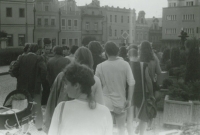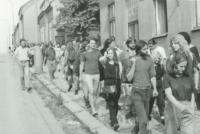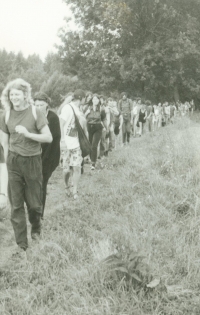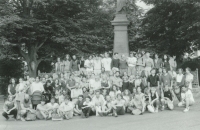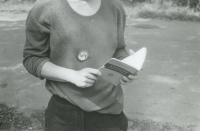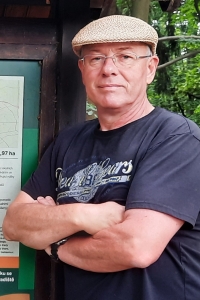He expected imprisonment for posting the „A few sentences“ manifesto
Stáhnout obrázek
David Šidlák was born on December 16, 1964, in Brno and grew up in Havlíčkův Brod in a cantor family. He devoted his free time to rock tramping and after high school, he joined the computer centre of the national company Pleas in Havlíčkův Brod. In the second half of the 1980s, he became close to people from the cultural sphere and joined the activities of the independent civic movement Havlíček‘s Youth. In addition to the initiative‘s activities, he took part in several demonstrations and underwent several interrogations at the STB. In the summer of 1989, he posted a manifesto of „A few sentences“ on the company‘s bulletin board, and after being charged, he was threatened with imprisonment. However, the trial in November 1989 did not take place due to internal political issues. To this day, he is a candidate for the Social Democrats in the municipal council and is a member of the Budoucnost ornamental association. At the time of filming, the witness lived in Havlíčkův Brod (February 2022).
